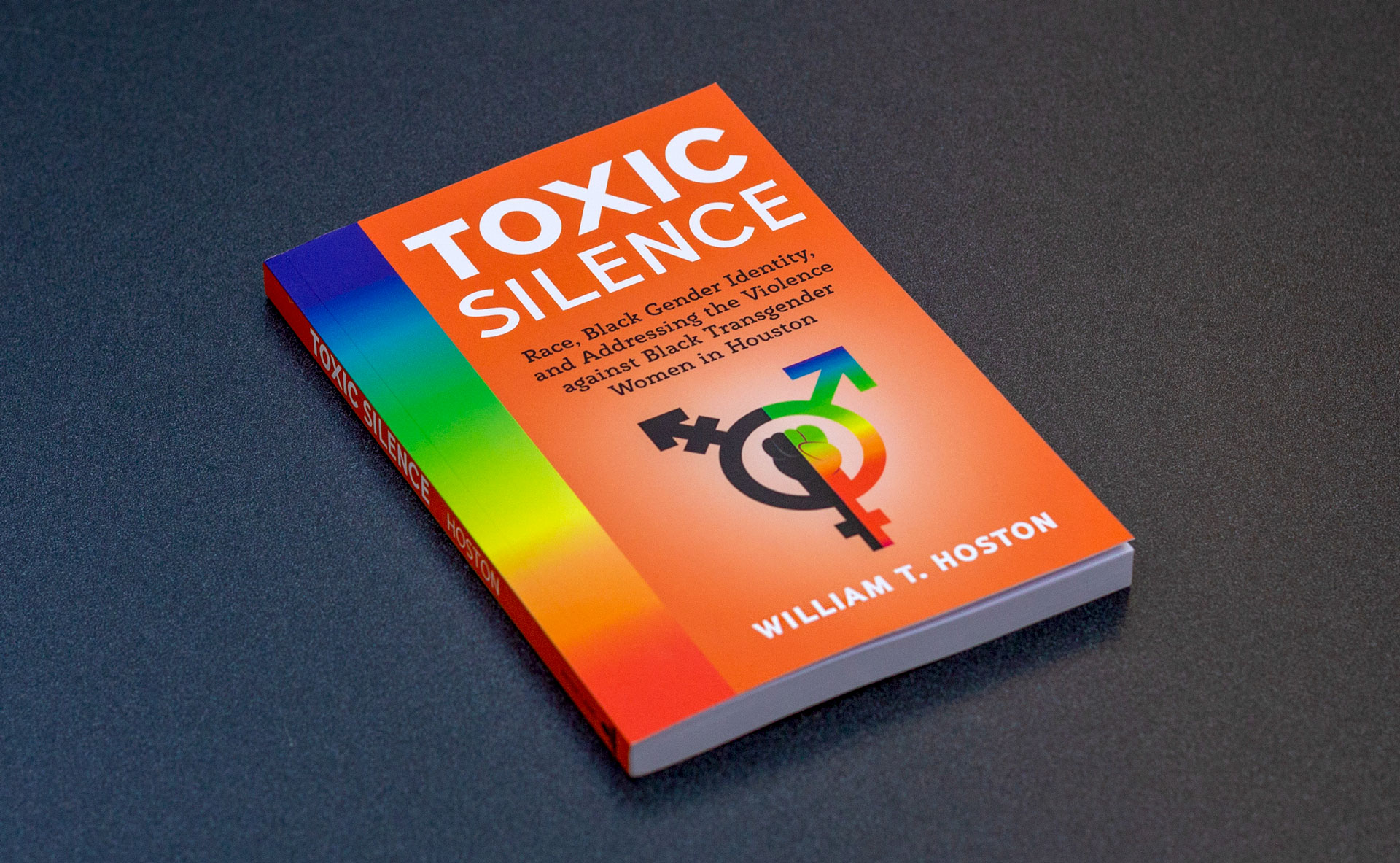UHCL prof's book spotlights toxic black masculinity, violence against transgender
women
October 8, 2018 | UHCL Staff

One of William T. Hoston’s areas of research as an author and associate professor
of political science at University of Houston-Clear Lake is the social construction
of black masculinity. While writing and speaking extensively about police involvement
in fatal shootings of unarmed black men, he discovered another rampant, often underreported
problem in our community: violence against black transgender women. His newly released
book, “Toxic Silence: Race, Black Gender Identity and Addressing the Violence against
Black Transgender Women in Houston,” explores this issue and shines a spotlight on
transphobic violence and murders in Houston.
“This book studies the reasons why black transgender women are being murdered and
who is responsible,” Hoston said. “There has been a recent resurgence of these crimes.
After conducting many interviews with black transgender women, I found that the majority
of men who are committing these murders are black cisgender (a person whose personal
identity and gender corresponds with their birth sex) men.”
In 2015, the National Coalition of Anti-Violence Programs reported a record total
of 22 transgender women murdered in the U.S., of which 17 were black—the highest number
of black transgender women murdered within a single year to date. As of September
2018, there have already been 19 transgender murders reported.
After connecting with Mia Ryan, a high profile black transgender woman known for participating
in a reality TV series on OWN entitled “Houston Beauty,” Hoston said he was able to
speak to 23 more women, of whom nine agreed to share their experiences. Ryan, who
is also an author and motivational speaker, wrote the book’s foreword.
“I found out a great deal of information about these women and their relationships
with cisgender men,” he said. “’Toxic masculinity,’ which is defined in the book
as a rebellious form of manhood that utilizes violence, is exercised by cisgender
men who are attracted to transgender women but do not want their masculinity questioned.
This is a root cause of the problem. These men are dating transgender women in secret
and do not want anyone to know about these relationships. Then, when the men think
it’s possible it might become known, or if disclosure is threatened, they can become
violent and kill the trans woman.”
His research showed that both white and black cisgender men solicit the services of
black transgender prostitutes. However, black cisgender men are responsible for a
disproportionate amount of the transphobic violence and murders. “After having sex,
the men will question their masculinity, become violent and then kill the women,”
he said.
In essence, Hoston said the men were engaging in sexual activity against their taught
black gender and cultural norms and values and simply could not cope with the idea
that they were attracted to the same medically assigned sex. “I found that white cisgender
men in relationships with black transgender women do not feel their masculinity is
questioned as much as black cisgender men,” Hoston said. “For black cisgender men,
challenging their masculinity could result in violence.”
This aggressive behavior, explained Hoston, is a part of the “toxic masculinity” that
is prevalent among black men in the community who act out violently because they can’t
come to terms with the fact that they have been intimate with a person who is anatomically
male. “Homosexuality is more accepted in the white community than in the black community,”
he said.
Hoston said two of the nine women in the book played a key role in guiding him through
the process of collecting information. “They told their stories in their purest form,”
he said. “The language is pretty direct. I wanted to produce something the transgender
women would be proud of—it’s not in my voice, it’s in theirs. There are not very many
black transgender academic voices out there. I’m just trying to narrate their stories.”
There are many takeaway lessons to be learned from these women’s experiences, Hoston
said. “The social institution of the black church could be more involved in addressing
the issues of black transgender women in a more positive way. In many respects, it
is anti-LGBTQ and I view this as an epidemic. I believe the careless murder of human
beings and the lack of ability to appreciate fellow human beings is an epidemic and
it’s the root of the problem.”
He said that black churches viewed this problem as a moral failing under God. “I dedicate
a whole chapter in the book to this issue,” Hoston said. “When an unarmed black man
is killed, the church will talk about it. But when a black transgender woman is killed,
there’s nothing from the church. To address it would open a Pandora’s box of religious
ideologies and the church is not prepared to do that.”
He wrote the book to help black transgender women tell their cultural truth. “Black
men have bought into gender norms and I believe that is what’s given rise to this
toxic masculinity,” he said. “Black cisgender men need to be true to their own sexual
orientation, respect the humanity of these women and end this toxic silence.”
Hoston’s book is available on Amazon. For more information about UH-Clear Lake’s
political science program, visit www.uhcl.edu/human-sciences-humanities/departments/social-cultural-sciences/.
About the Author:
Recent entries by
October 18 2022
Better technology transforms campus safety: Police Chief demonstrates SafeZone to students
October 14 2022
Student's skill with drones takes chicken turtle research to new heights
October 11 2022
Planting event to help UHCL restore native plants to campus, support environmental sustainability







